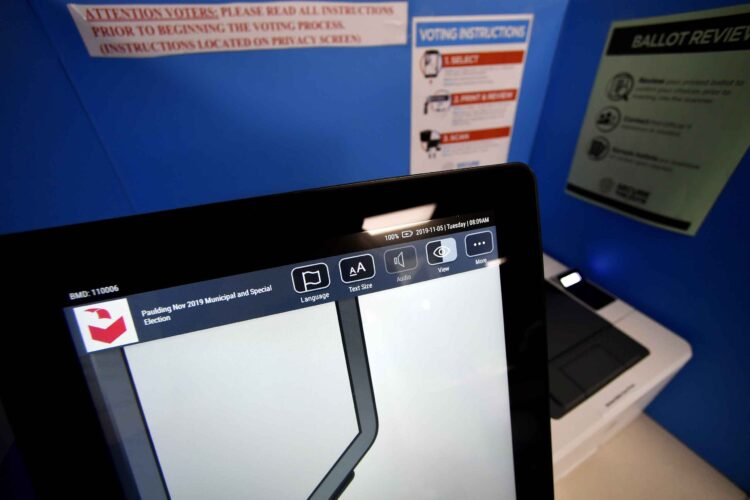This past weekend in Las Vegas, attendees of the DEF CON Conference found “multiple pages” of vulnerabilities in voting machines that will be used in November US elections. Fixes to the machines in response to the new-found vulnerabilities will likely not come until after the election.
The “Voting Village” event was designed to give talented white-hat hackers an ability to exploit vulnerabilities in voting machines, giving authorities crucial information to update their cybersecurity.
Elon Musk posted on X, suggesting a move to paper ballots in response to the new revelation.
Uhh … what? Let’s use paper ballots! https://t.co/7jZ7UPc1AI
— Elon Musk (@elonmusk) August 13, 2024
Harri Hursti, co-founder of the Voting Village, spoke to the importance of the event: “If you don’t think this kind of place is running 24/7 in China, Russia, you’re kidding yourselves. We are here only for two and a half days, and we find stuff… it would be stupid to assume that the adversaries don’t have absolute access to everything.”
Organizers and attendees are often frustrated at the slow pace government bureaucracies move at to fix the exploits they find. “There’s so much basic stuff that should be happening and is not happening, so yes I’m worried about things not being fixed, but they haven’t been fixed for a long time, and I’m also angry about it,” Hursti commented.
Voting fraud has been a particularly contentious issue in the US since Donald Trump’s declaration that the 2020 election was “rigged.”
Just saw the vote tabulations. There is NO WAY Biden got 80,000,000 votes!!! This was a 100% RIGGED ELECTION.
— Donald J. Trump (@realDonaldTrump) November 26, 2020
On Saturday, Trump’s campaign confirmed it had been hacked. News outlets received suspicious documentation claiming to be from the Trump campaign, later confirmed to be from a cybersecurity breach. According to Clint Watts, General Manager of Microsoft’s Threat Analysis Center, an Iranian hacking group connected with the Islamic Revolutionary Guard Corps (IRGC) “sent a spear phishing email in June to a high-ranking official on a presidential campaign from the compromised email account of a former senior advisor.”


















Add comment